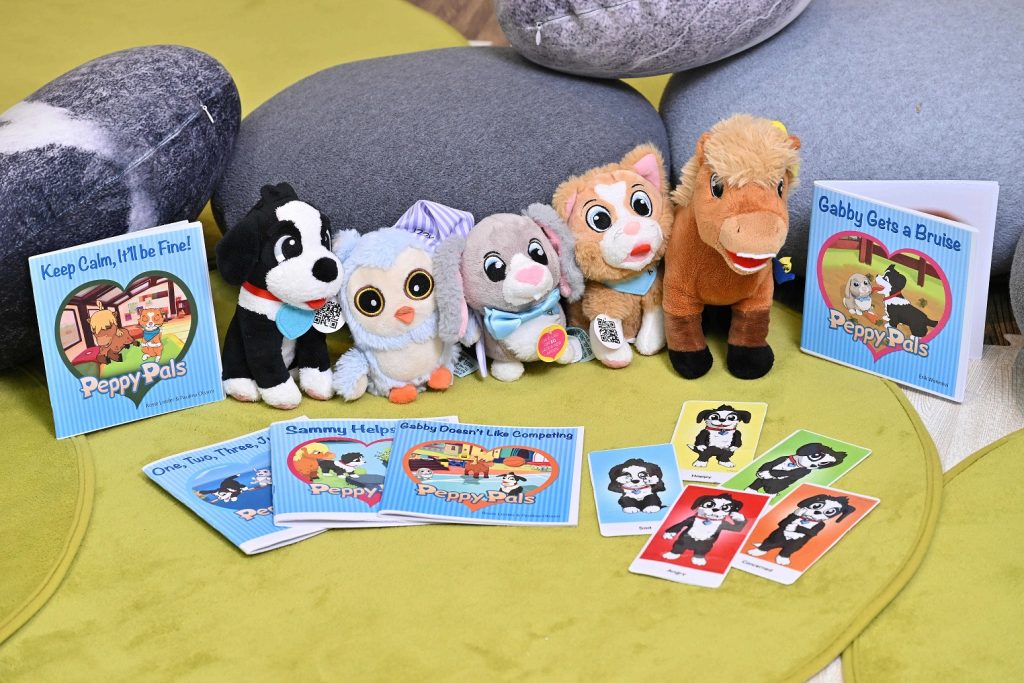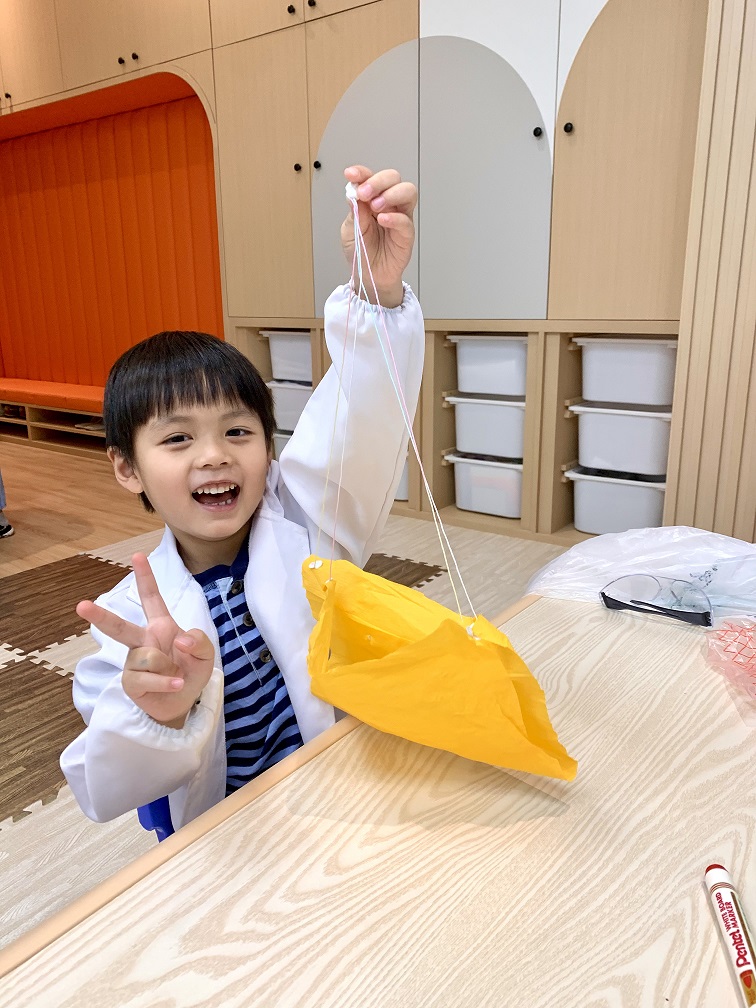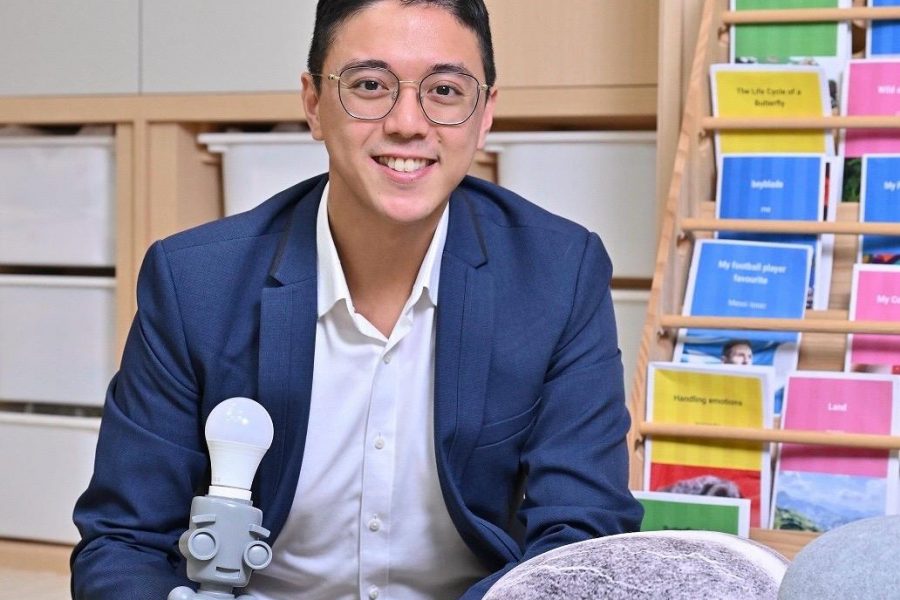Finland, the reigning champion of the World Happiness Report for seven consecutive years, owes its top ranking not only to its generous welfare system and narrow income gap but also to its emphasis on self-directed learning and eliciting students’ thinking. This educational approach offers numerous opportunities for the youths to cultivate their passions from an early age. InNordics, a Hong Kong-based organisation promoting Nordic education, aims to open another window for local children to foster a more flexible cognitive process.
Cognitive training is a global trend in education
Alan Ng, Founder of InNordics, was born and raised in Hong Kong. He had been studying in Hong Kong until he discovered Finland’s new education policy for foreign students by a coincidence right before university. The policy allowed students who passed the exams and gained admission to local universities to study for free, presenting Alan with an opportunity to pursue higher education in Finland. Eager to interact with students from diverse nationalities, he majored in international business. Over a brief span of four years under the Finnish education system, he fell in love with studying. “Studying in Finland brought me immense joy as I enjoyed a seemingly inexhaustible amount of time. We would finish school or work early in the day, with ample space and time to explore our passions and interests. The local teachers were all very supportive as well. In stark contrast, students and workers in Hong Kong face tightly packed schedules without a moment to spare. Finns are happy to read or learn about topics that spark their interest through various media. With remarkably creative minds, they can engage in conversations about anything under the sun,” Alan shares.
Alan’s experience of attending university in Finland not only ignited his passion for learning but also piqued his interest in the Nordic education system. He highlights that the Nordic approach prioritises self-directed learning and independent thinking. Teachers are committed to helping students develop independent thinking patterns through reading, phenomenon-based learning or scientific experiments.
“While independent thinking is similar to critical thinking, it goes beyond rigidly adhering to a specific perspective. In Hong Kong, interdisciplinary learning is still encouraged – which means students are confined within the boundaries of individual subjects. Meanwhile, Nordic education has transcended disciplinary frameworks. Their emphasis on phenomenon-based learning enables students to delve into topics according to their own interests, conducting research and presenting arguments that integrate knowledge from diverse domains. There is no longer a need for categorisation or a deliberate focus on specific angles. There has been speculation online that Finland has abolished subjects altogether. However, the reality is that they prioritise a comprehensive and macroscopic thinking approach to nurture students’ abilities to consolidate a wide array of information.”Alan points out that the current global development trend has diminished the significance of rote learning, as AI can swiftly provide access to information. Nevertheless, since AI cannot replace the human thinking process, cognitive training remains the focal point of modern education.
Introducing evidence-based Nordic education to Hong Kong
Another key advantage of Nordic education is that all its teaching methods are supported by research evidence. According to Alan, the Nordic education system is founded on a wealth of scientific or academic studies. These research reports are available for all educators. After understanding the effectiveness of each educational model, teachers can choose to implement specific models for designated age groups if they find them suitable. Inspired by this evidence-based education system, Alan founded InNordics in 2018 to introduce Nordic education to Hong Kong. From 2020 to 2023, he opened learning centres in Tseung Kwan O and Shek Mun. In 2022, he launched Hong Kong’s first “Nordic Education Hub” in Happy Valley.
InNordics offers a range of patented Nordic innovative education programmes specifically tailored for children aged three to 12, covering subjects like science, social emotional learning, creative writing, physical training and 3D modelling. The programmes aim to foster independent thinking skills in children by encouraging them to think, observe and compare through play and hands-on activities. Alan shares that while the benefits of these Nordic educational programmes may not be immediately reflected in children’s academic performance, they provide significant long-term benefits for our little ones’ holistic learning. He notes, “Although Hong Kong places a stronger emphasis on academic training, I believe that Nordic education is more suitable for local children. The Hong Kong education system tends to be constrained by how schools allocate resources to different subjects. Some subjects cannot achieve much due to limited resources, and schools prefer to invest resources in academics for tangible results. Similarly, parents often prioritise practical skills such as public speaking and interview skills. By introducing Finnish education to Hong Kong, my goal is to provide children with a fresh cognitive pattern and empower them to explore and develop their interests.” InNordics also provides teacher training for local schools, educational institutions, non-profit organisations and businesses. School visits, fun days and workshops are organised to promote the benefits of Nordic education.

Quick thinking – a strength and a weakness of Hong Kong students
After six years of working in education in Hong Kong, Alan is confident that every student in Hong Kong has a rich background of educational activities and exhibits a remarkable ability to absorb new knowledge. They are often quick thinkers who demonstrate strong responsiveness. When doing scientific experiments with them, they can quickly identify the chemical reactions and sometimes even anticipate the outcomes. However, Alan points out that this quick thinking can be a double-edged sword. He explains, “They often leap to conclusions without carefully observing and considering the changes in each step of the experimental process. This weakens their logical reasoning, and their argumentation process easily jumps from the first step to the final conclusion.” In light of this, InNordics’ STEAM programmes incorporate repetitive experiments of a similar nature. Through guided inquiry-based learning, they kindle students’ curiosity and encourage both teachers and students to meticulously observe each step, thereby deepening students’ understanding of the experiments. Instructors at InNordics prioritise a play-based teaching approach, fostering equality between teachers and students. Children are not expected to rigidly adhere to instructions, but instead view scientific experiments as a collaborative learning journey shared with their teachers. Alan firmly believes that learning truly begins the moment we ignite children’s interest.
Even if children are introduced to the Nordic cognitive model later in life, they can still understand it. Alan adds, “As I use this cognitive model to teach my students every day, I get to improve my thinking patterns as well. So, late exposure does not necessarily mean slower comprehension.” Alan emphasises the importance of letting children explore and experiment. He explains, “One of the biggest challenges in implementing Nordic education in Hong Kong is breaking free from our ingrained mindset and culture of relentless competition.
Many parents may think that the Nordic approach primarily focuses on play and offers limited academic benefits. However, our ultimate goal is to instil a genuine love for science in children. When children are interested in something, they will naturally delve deeper into what they have learnt – that is what truly matters. We also aspire for children to develop the habits of proactive learning and problem-solving through the continuous exploration of knowledge. We are not a factory blindly replicating the Nordic cognitive model. Instead, we aim to inspire children’s thinking and gradually help them develop their unique cognitive frameworks, liberating them from the traditional focus on grades within the Hong Kong education system.”

InNordics offers a curated selection of five courses sourced from esteemed educational institutions across the Nordic countries. Finnish STEAM-UP KiDe! is a STEAM programme officially recognised and endorsed by Education Finland and Education Alliance Finland. Designed by a Finnish education expert with over 35 years of teaching experience, Finnish MOVE-UP! centres around the development of six essential skills through physical activities. Inspired by Danish educational studies, Danish WRITE-UP! incorporates the innovative online storytelling tool WriteReader. Swedish FEEL-UP! is a social emotional learning programme honourably commended by the Swedish royal family. Norwegian MODEL-UP! leverages 3D model design and AR technology to foster children’s 3D spatial awareness and creativity. Furthermore, InNordics is introducing the New Future Astronaut Programme. Set to launch this summer, this brand new space programme was originally developed by the edutainment brand MilkCargo together with Rovio, the Finnish game developer that created Angry Birds, and the NASA Houston Astronaut Training Centre (Sonny Carter Training Facility).

